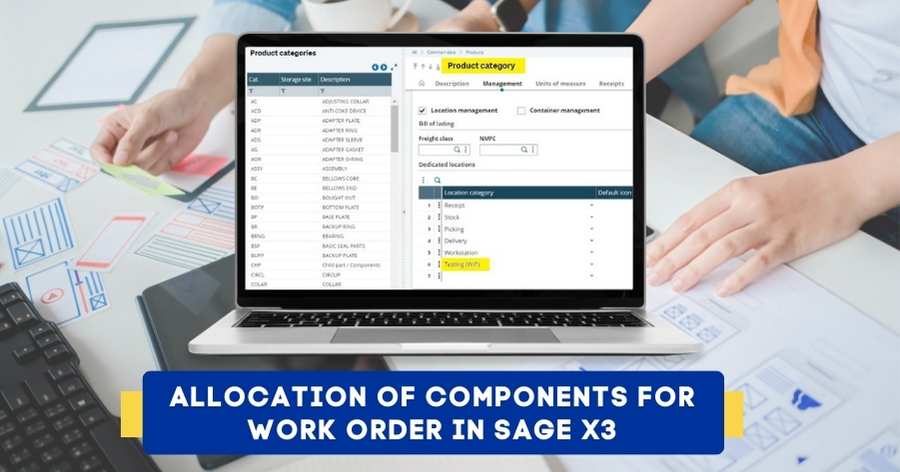What is an ERP System for aerospace industry?
ERP system for the aerospace industry is high-end software that offers deep integration with research, design, engineering, quality control, workflow management, cost budgeting and planning, compliance, and other processes in a controlled environment in the aerospace industry.
The purpose of using such a system is to improve efficiency, increase compliance, and avoid costly penalties. It brings visibility across all business operations, so decision-makers can make informed decisions.
Overview of the Aerospace Industry
India’s Aerospace industry is expected to reach $70 Billion, according to the projections made at the Aerospace and Defense Summit. There are about 1,000 aerospace companies operating throughout India. These companies collectively employ a population of about 2 Million people.
India has come a long way from being a defense importer to becoming a defense manufacturer and exporter. India exported a Made-in-India Brahmos supersonic cruise missile to the Philippines for $375 Million. Moreover, India is also developing several indigenous aerospace capabilities, such as Tejas.
You May Also Like: Benefits of ERP Software for Aluminum and Metal Sheets
Challenges Faced by the Aerospace Industry
-
Technological Upgradation
Keeping pace with the latest technological changes can be a challenging task for the aerospace industry. The fostering of innovation in the field of aerospace may require substantial investment in research and development.
-
Complex Rules and Regulations
The rules and regulations surrounding the aerospace industry are complex in nature. Manufacturers have to strictly adhere to export regulations and keep an eye on changing relations with other countries. There are different regulations governing different aspects of the aerospace industry in India, such as production, import, and export of aircraft, and testing and safety standards.
-
Financial Investment
Aerospace manufacturers need a substantial financial investment due to their business nature. The high cost of manufacturing, the high cost of research and development, and the long development cycle are some of the factors that affect product pricing.
Features of Using ERP Systems for Aerospace Industry
-
Data Scalability
Aerospace ERP systems are complex by nature. They can handle very large amounts of data and store it in a structured manner. Data scalability is the ability of the ERP to handle increasing amounts of data without causing sluggishness or performance issues. There are two types of data scalability: horizontal and vertical scaling. The former is more complex and expensive to set up, whereas the latter is relatively cost-efficient.
-
Data Analysis and Reporting
An ERP solution collects data from all business departments, stores it in a central repository, and empowers businesses with a range of analytical and reporting tools to find anomalies in the data. Businesses can compare current data with historical data, understand consumer behavior, identify market trends and patterns, make pricing decisions, and get a comprehensive state of their business operations using powerful analytical tools.
-
Consistency in Business Operations
Business Management Software provides real-time access to crucial business data in the aerospace and defense industries. This ensures that everyone is working on the same version of the dataset and that there is consistency throughout the core business operations. The more consistent the data, the more accurate the forecasting and reporting will be.
-
Streamline and Automation
Aerospace ERP software streamlines various aspects of the business, such as tracking, managing, and re-ordering inventory, tracking employee time, performing assessments, generating reports, and so on. Automating regular business operations frees defense and aerospace employees from repetitive data entry tasks, and they can utilize the time for productive tasks.
-
Data Traceability
Aerospace and defense companies that keep records by hand and then convert them into Excel spreadsheets face numerous challenges, such as human errors, obsolete data, missing data, and data conversion problems. ERP modules maintain massive amounts of data in a centralized database, which helps track the history of data throughout its lifecycle, from its source to its destination. It becomes easier to know the data’s origin and understand how changes were made to the data.
You May Also Like: What is a manufacturing execution system?
Benefits of Using ERP System for Aerospace Industry
-
Engineering Change Control
Engineering Change Control (ECC) is the process of tracking and managing changes to a product throughout its manufacturing process. In an industry like aerospace, where even small changes can have significant impacts, manufacturing ERP software maintains all ECC documentation to track and record every change and generate a report for final approval.
-
Complete Audit Trail
For aerospace and defense manufacturing companies, internal quality metrics, safety, and compliance audits are arduous. ERP software for aerospace streamlines automated audits to identify bottlenecks and inefficiencies, provides insights and custom reports into the company’s performance, and provides opportunities to take corrective steps.
-
Resilient Supply Chain
The supply chain management tools in aerospace ERP bring visibility into the flow of the supply chain and provide an efficient way to handle the procurement and delivery of products. The supply chain process becomes more transparent, scalable, and efficient. Aerospace companies can efficiently plan, schedule, and dispatch materials on or before time while maintaining the highest standard of quality.
-
Manage Budgets and Financial Statements
Aerospace ERP implementation allows aerospace and defense manufacturing companies to track expenditures and revenues associated with different aerospace projects, manage budgets, automate AP, and automatically generate accurate financial statements. It enables companies to get a more accurate picture of the organization’s financial health and effectively communicate it to concerned stakeholders such as investors and the Government.
-
Improved Compliance
Aerospace manufacturing software eliminates data entry and manual reporting and provides real-time visibility throughout business operations. ERP’s ability to trace all parts and materials helps meet regulatory compliance. Companies can effectively comply with aerospace industry-specific regulations such as the company’s internal policies, security compliances, data protection laws, agreements with third parties, and the manufacture, possession, sale, and operation of aircraft.
Conclusion
Aerospace manufacturing software streamlines the production process and provides easy means to track and fulfill customer orders. It acts as a single source of truth for all of the company’s critical data to get a better understanding of its business activities.
Sage X3 is one of the most scalable systems that provides a higher level of automation and focuses on small and medium-sized manufacturers. With many Aerospace companies having multiple branches across the world, they benefit from its multi-country, multi-currency, and multi-language features.







